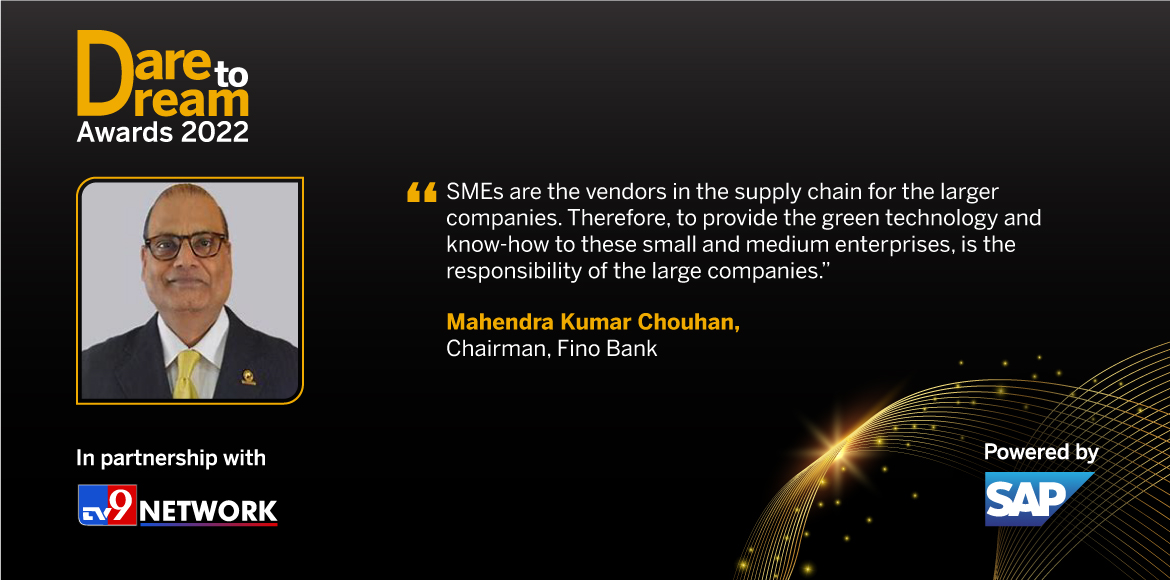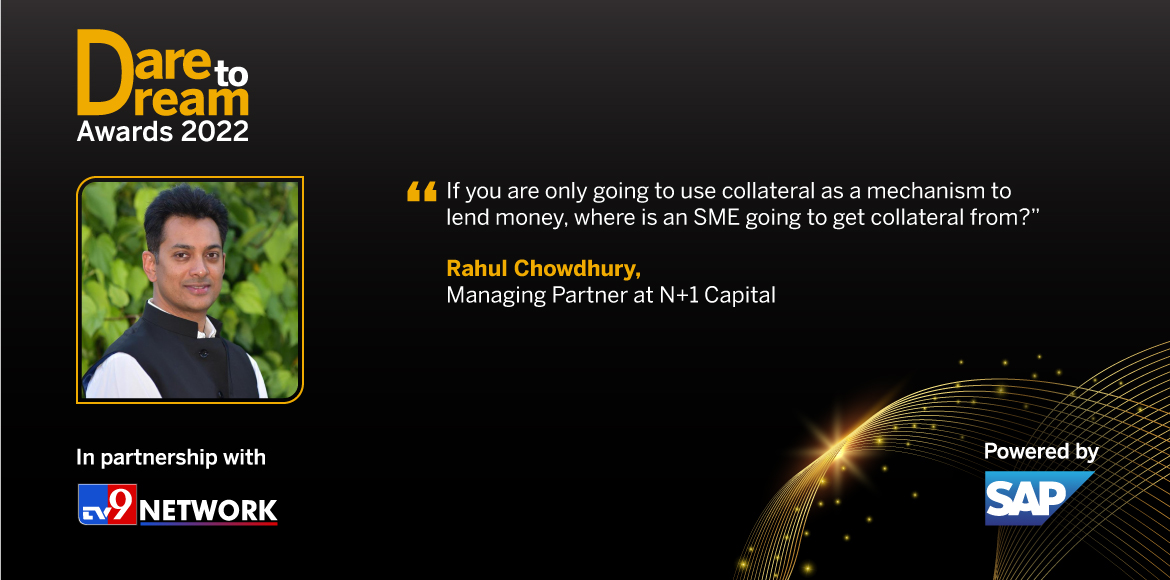Insights on New-Age Financing from the Dare to Dream Awards Ceremony
-
23 Nov 2022
-
Blogs | Dare to Dream
The MSME sector has undoubtedly realized the potential of digital transformation in driving new growth. Powered by SAP, in partnership with TV9 Network, the Dare to Dream Awards 2022 was an incredible experience, recognizing pioneers who have shown the conviction to digitally transform and fuel India’s rise.
As a part of the Dare to Dream Awards 2022 event in Mumbai, an insightful discussion was held on ‘Raising Capital the New Way: Legacy Business, New-Age Financing’. The panellists included Ajay Thakur (Head, BSE SME Exchange), Mahendra Kumar Chouhan (Chairman, Fino Bank), Rahul Chowdhury (Managing Partner, N+1 Capital), and Sanit Patel (Board of Advisors, Charge Zone).
Moderating the session, R. Sridharan (Managing Editor, TV9 Kannada) set the context by speaking about the global phenomenon of funding winter, with the tightening of monetary policy. He went on to describe the perma-winter for Indian SMEs who are always struggling to raise capital.
Shedding light on new-age financing for small and medium-size enterprises, Mahendra Kumar Chouhan had an interesting take on raising money in innovative ways, which now involves organizations becoming environment friendly and socially responsible.

He added a thought-provoking angle to this saying, “SMEs are the vendors in the supply chain for the larger companies. Therefore, to provide the green technology and know-how to these small and medium enterprises, is the responsibility of the large companies.” On the lending side, he opined that while much is being done, more banks need to adopt digitalization.
Rahul Chowdhury, who is a great advocate of SMEs and the quality of entrepreneurs today, added that banks are slow in changing their mindset and exploring innovative options when it comes to non-dilutive capital like revenue-based models. In his words, “If you are only going to use collateral as a mechanism to lend money, where is an SME going to get collateral from?”

Sanit Patel also added that it is difficult when starting out, and while venture debt has helped young entrepreneurs to not dilute their equity, it does come at a cost. He concluded however that, “Equity and venture debt have been supportive when loans aren’t an option.”
Sharing a different perspective on raising capital, Ajay Thakur pointed out that the SME industry has limited financial literacy when it comes to the equity market. The need of the hour he believes is to handhold them and make them stronger in terms of proper financial statements, hiring promoters who have the necessary expertise in understanding financial structures.
A question that was on everyone’s mind was posed by R. Sridharan, as to what is the trade-off that entrepreneurs are willing to make when it comes to the choice of equity, debt or hybrid sources of capital – when they want to retain control of the company. Based on his experience with Charge Zone, Sanit Patel put forth the view that it depends on what stage the company is in. “If you have strong unit economics and you’re raising a larger round, equity dilution helps. But for a shorter given span of time, revenue-based or venture debt also helps.”
For more in-depth and impactful insights on how the Indian midmarket industry can gain the financial backing to support their growth aspirations, please view the recording from the Dare to Dream Awards Ceremony.